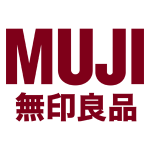Muji Files Chapter 11, Plans Online Focus
The Japanese retailer’s U.S. stores are in prime locations, leaving it struggling to make enough money to overcome expensive leases.
 The U.S. arm of Japanese home-goods retailer Muji has filed for bankruptcy after struggling to generate enough business to overcome its high rent costs.
The U.S. arm of Japanese home-goods retailer Muji has filed for bankruptcy after struggling to generate enough business to overcome its high rent costs.
The Chapter 11 filing came 13 years after Muji opened its first U.S. store in the SoHo neighborhood of New York City. While Muji U.S.A. has expanded to 18 stores, it has been saddled with expensive leases and temporarily shuttered all its locations in March in response to state and local government orders requiring the closure of non-essential businesses due to the COVID-19 pandemic.
The company, which sells minimalist decor, stationery and clothing, said it will continue operating during the bankruptcy process and has secured up to $22 million in financing from parent company Ryohin Keikaku.
“Muji has felt the devastating effects of the Covid-19 pandemic on in-store retail, and as a result will take this opportunity to refocus our efforts in the United States on key regional markets and e-commerce,” Muji U.S.A. CEO Satoshi Okazaki said in a news release.
E-commerce accounted for approximately 6% of Muji’s gross sales in 2019 and nearly all of its sales during the current pandemic.
Muji’s bankruptcy adviser, John Bittner of Mackinac Partners (now Accordion), noted, however, that the company “was struggling financially even prior to the outbreak of COVID-19,” experiencing operating losses in the first two months of 2020 after posting net losses of $8.6 million and $16.9 million in 2018 and 2019, respectively.
“A large portion of these losses are directly attributable to the debtor having expanded its footprint quickly and entered into expensive, above-market leases for numerous store locations,” Bittner said in a court declaration.
According to Nikkei Asian Review, Muji’s “outlets are located in prime locations like New York’s Times Square and 5th Avenue — places that come with exorbitant rent” and those “liabilities caused a vicious cycle that ballooned operating losses.”
Even if Muji succeeds in modifying its rent payments, “it may still take time for Muji’s U.S. operation to get back on its feet” in part because its products seem overpriced in comparison to imports from China, Nikkei said.
Our Services
Deep technical financial skills, big picture thinking, and a focus on flawless execution: that's how we roll. Learn more.
Our People
What makes us most distinct. Different backgrounds, but a shared commitment to excellence. Get to know us.
Our Insights
Using our unique lens into best practices of private equity funds, we aggregate industry trends. Take a look.

